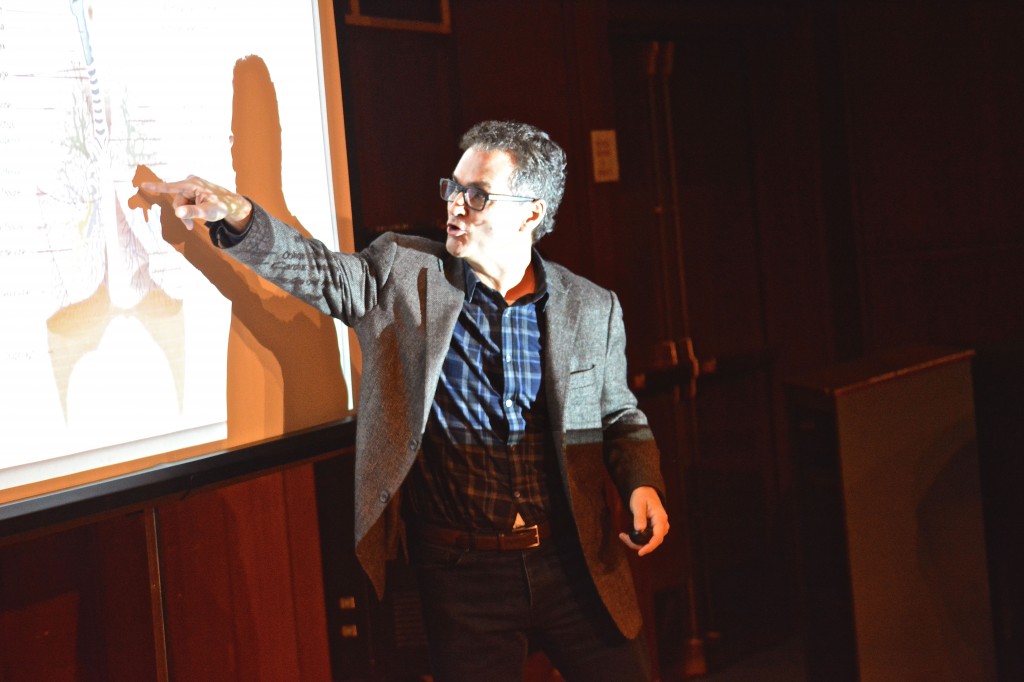
The crowd hushed to a silence as iconic images flashed across the screen — photos and videos of the World Trade Center towers falling on Sept. 11, 2001, dust engulfing the streets of New York City and tearful New Yorkers standing in a city covered in ash.
On Thursday evening, William Groner spoke to attendees in the Casadesus Recital Hall and presented “Ground Zero Dust: Its mysterious medical consequences and the resulting epic first-responders litigation,” a talk discussing his involvement in the compensation of those who fell ill following the attacks.
Groner graduated from Binghamton University in 1977 and later attended Boston University School of Law. He co-founded and is a managing partner at Worby Groner Edelman LLP, and co-managed the firm’s litigation.
Beginning with a single phone call from a detective injured in the terrorist attacks that occurred on 9/11, Groner and his law firm eventually represented the nearly 10,000 victims injured from the aftermath of dust and particles in the air.
According to Groner, 9/11 was not only the first time mass amounts of citizens were exposed to excessive amounts of toxic substances in the air, it was also the first time that dangerous materials, such as glass fibers, sulfur, PCBs and silicas were combined to possibly create illnesses including respiratory ailments, cancers and gastrointestinal disorders.
“The [9/11] case is all about dust,” Groner said. “Science we knew at this point that PCBs can cause asthma, can cause cancer, but what we didn’t know at this point was ‘What will they do in synergy?’ We’ve never seen silicas and PCBs combined and inhaled by someone — not even rats.”
Groner and his firm began with a settlement of $650 million, which was initially rejected. After Groner and his firm created a new point system ranking the severity of illnesses and determining the total compensation each victims should receive, an ultimate settlement of $850 million was reached.
Everyone Groner represented received compensation with varying amounts based on the point system. Groner said he and his team worked tirelessly for over 10 years and never believed they would lose.
“I am not objective when it comes to this,” Groner said. “I represented 10,000 victims. I am biased, and I look from their perspective.”
Following the presentation, Rose Frierman, the senior director of Alumni Relations, said she appreciated Groner’s willingness to return to BU and share his experiences in such a high-profile case.

“He also exemplifies what we would hope all our students and alumni would become,” Frierman said. “A passionate, tireless advocate for our University in addition to just being a really nice guy.”
Students in attendance, including Steven Lazickas, a sophomore double-majoring in political science and English, said they enjoyed Groner’s determination to succeed in the case that still is going on today.
“Working for 11 years on one case, he really did care and work hard,” Lazickas said. “His dedication to giving the people what they deserved was pretty awesome, pretty inspirational.”
Groner said he hoped his story resonated with BU students and encouraged them to continue their pursuit in a career in law and civil service.
“To be able to come back here and share my experiences and give people a confidence that this institution will give them an education that can give them opportunities to do something hugely significant in life, is wonderful,” Groner said.


